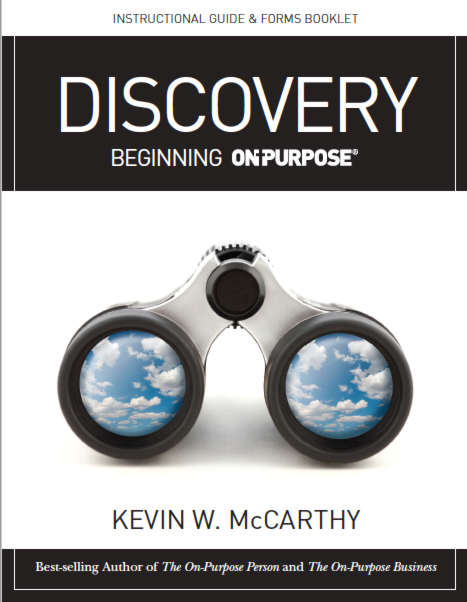How Are Life Goals and Purpose Related?
Life goals and purpose are often confused or casually used synonymously. Words carry power and meaning. This confusion, therefore, has real-life implications.
Certainly, purpose and life goals are related as both inform aspects of self-leadership and identity. When life goals and a God-given purpose are confused, then the person is confused. So are those people around them. The effects of this confusion ripple outward as well as return even more confusion. Despite our best intentions, we’ve unknowingly thrust ourselves into a cycle of lost opportunity. Then we wonder things like, Why can’t I ever get a break or breakthrough?
Defining Life Goals
Let’s first break down the question about the difference between life goals and purpose by clarifying our terms. This begins by defining what is a goal, then what is a life goal.
Goals are achievement milestones with measurements within a larger mission. They have definite starting points and endpoints. They are reached or not reached. Dreams are wishes or aspirations left undefined. Whereas goals are tied to specific numbers such as an amount, a date, or a percentage. When a goal is reached they are checked off a list as complete as in” been there, done that.” Sometimes a reached goal is reset to a new number such as reaching a healthy weight.
A “Life Goal” is understood depending upon whether the word life is being used as a noun or adjective.
- As a noun, a more apt description is a “lifetime goal.” Used here, life, the noun, refers to a starting point of a decision either now or sometime set in the past until one’s death. The challenge, of course, is the endpoint or date of death is unknown, so these goals are more along the lines of guiding ideals or objectives. They were made famous by the movie, “The Bucket List.”
- As an adjective, a “life goal” is one that fits into a specific category of personal goals by comparison to a work, team, or organizational goal. Within life goals, one can further break them down into specific goals related, for instance, to health, career, financial, learning, and such. These life goals are those over which one has the most direct influence or personal capacity to realize them.
Goals and Success
The following quote about goals by Earl Nightingale, the Dean of Personal Development, from his seminal work, The Strangest Secret, provides meaningful context to goals, ideals, and success.
“Success is really nothing more than the progressive realization of a worthy ideal. This means that any person who knows what they are doing and where they are going is a success. Any person with a goal towards which they are working is a successful person.”
Earl Nightingale

Let’s say a 25-year-old person sets a lifetime goal by saying, “Starting today, my goal is to be financially independent the rest of my life.” But what does that really mean? It is undefined, therefore, it is wishful thinking.
Let’s add numbers and make it a goal. If this young adult has been on her “parent’s payroll” up until now, then her present goal is to never again have to ask her parents for financial support. Perhaps she’s started a good-paying job and finally sees her way clear toward financial independence from the past.
Another aspect of her lifetime ideal might further convert to a goal like this: “And, by the time I am 35, I will have $2.5 million in an investment account so that I don’t have to work again unless I want to work.” This is a future goal with a date and an amount. The ideal has moved toward the real because she’s attached a number to it. Now she needs to set a plan to achieve her goal. She might see herself climbing a corporate ladder or starting a business or trading stocks and bonds to reach her goal.
If this all seems like too much to learn, relax.

If you need help sorting it all, the Discovery Guide is a free 26-page download with instructions and forms to help you clarify what you want in your various “Life Accounts” as described in The On-Purpose Person. Follow the simple instructions to collect what you want, use tournaments to focus and time management tools to block time to achieve your desired goals. There’s also a premium version for a $7 investment.
Defining Purpose + Life Goals
Purpose informs goals. Goals are the what and when; purpose is the why — the deep underlying force for good motivating us to set goals and life goals. Purpose is God-given, meaning it is bigger than us. It places us in this present moment, provides a historical context, and carries us into an eternal future. Purpose is our way to tap into our deepest sense of identity and peace.
Purpose isn’t something you do. It is who you innately are. You can’t change your purpose any more than you can change your fingerprints, DNA, or eye color. Purpose is about your state of being, not your doing; yet your doing is affected by your being. This said, the expression of your purpose or your missions do change. Where you see your life headed — your vision — changes, but purpose is unchanging and unconditional. Just as you exist, your purpose exists. You didn’t ask for it yet you have it.
Because of the nature of purpose, we grapple to grasp what is the purpose of life, in general? And, specifically, what is the purpose of my life? Prior to ONPURPOSE.me, finding one’s God-given purpose was shrouded in both mystery and misunderstanding — in fact, lots of misunderstanding.
Purpose is a hot topic these days. This has only confused it even more. Authors, speakers, and preachers talk about purpose with a cursory or common understanding.
They unwittingly slap it on the cover of a book cover, sermon, or speech as much for the marketing benefit rather than the benefit of the audience. This recklessness further complicates and misleads the earnest pursuit of assuming responsibility for one’s well-being.
Purpose is divinely uncommon. It’s not of this world, yet it’s remarkably in every decision we make and action we take in this world. As vital as your 2-word purpose is to your understanding of your purpose, it remains a mere limited representation of your purpose.

Just as a wedding band is a symbol of a marriage, a 2-word purpose is a representation of something far more powerful and mystical than our hearts and minds can grasp. That’s just the nature of God-given purpose. It doesn’t mean we shouldn’t desire to draw close to our purpose in order to harness it to the advantage of ourselves and the world. To know your purpose and to be informed by your purpose is to be on-purpose.